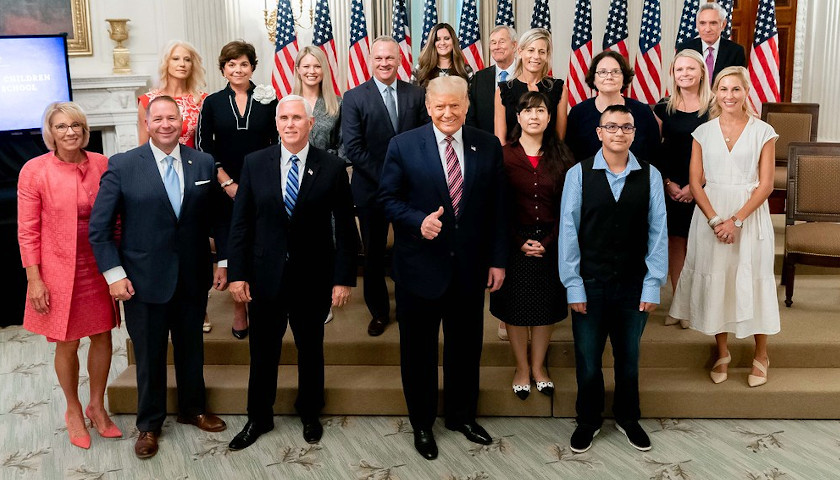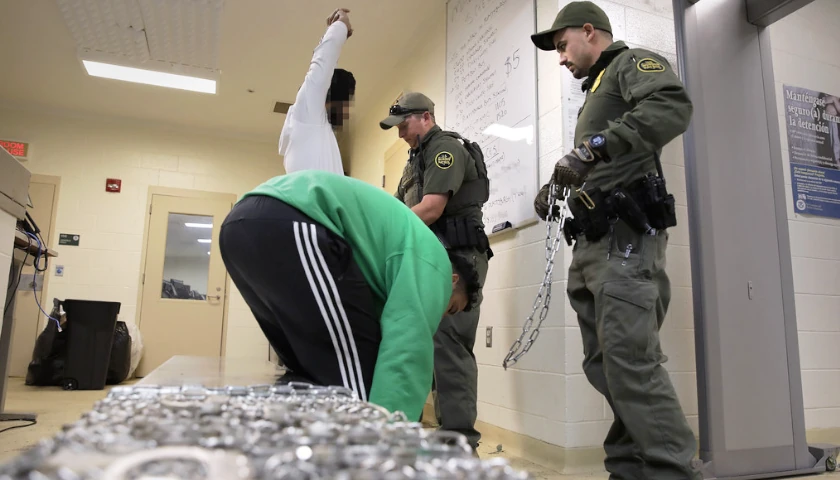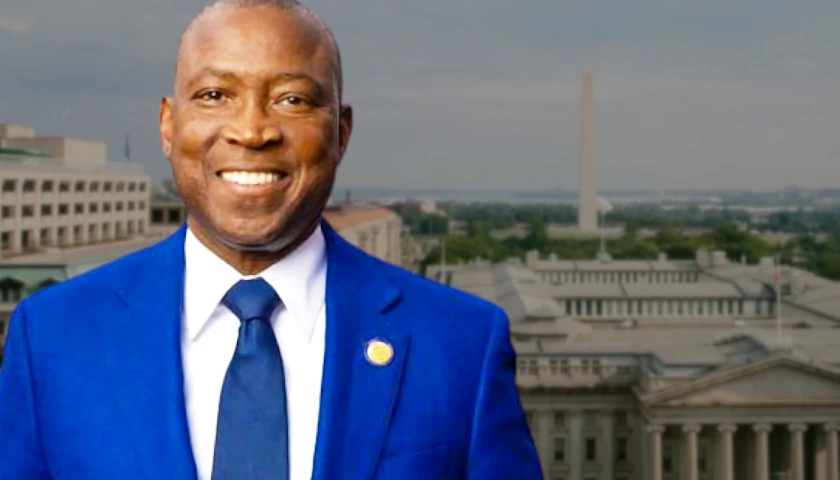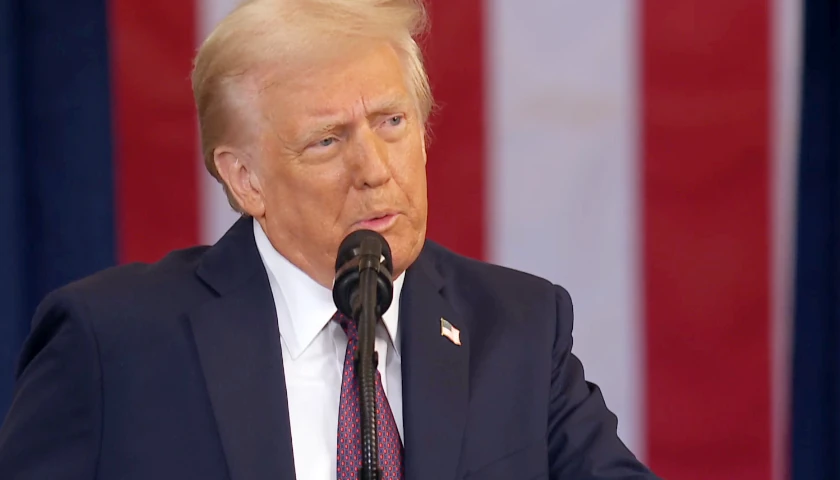by Bethany Blankley
At a forum held at the White House Wednesday, the Trump administration said it is calling on Congress to authorize another $105 billion in funding to help states reopen schools.
“We believe many school districts can now reopen safely, provided they implement mitigation measures and health protocols to protect families, protect teachers, and to protect students,” President Donald Trump said.
The president has called on Congress to pass $105 billion – $70 billion of which is for K-12 schools – to provide financial assistance and incentives to help schools implement safety measures to resume in-person classes.
He has also called on Congress to pass the School Choice Now Act, which includes the Education Freedom Scholarships proposal that gives students and families “the resources and power to select the right education setting for them.”
So far, $13 billion in federal funding has already been sent to states to support K-12 education to help them safely reopen.
Teachers’ unions across the country have cited health concerns in pushing for virtual learning only to start the school year.
Trump maintains that if schools remain closed, taxpayer money should follow the student “so the parents and children are in charge of their own decision.”
The event held at the White House included a panel of 10 educational leaders, teachers and parents from a range of states. All 10 said students need to return in person to school in the fall.
“Students and their families can’t be held captive to other people’s fears or agendas, Secretary of Education Betsy DeVos said at the meeting. “We have got to ensure that families and parents have options that are going to work for their child and their children’s education.”
“Overall risk is low for kids contracting COVID-19,” Kelly Anne Conway, counselor to the president, said, whereas “risk is very high if they remain in lockdown indefinitely.”
Conway cited a Kaiser Family Foundation poll in which over 65 percent of parents said they were concerned that their children will fall behind if they do not return to school.
For teachers over age 60 who are concerned about their health, the White House has provided guidance online. The overwhelming majority of public K-12 teachers, however, are younger. Among them, 92 percent are under age 60. In the absence of certain underlying medical conditions, they are likely at lower risk for serious illness, hospitalization or death, guidance by the White House says.
Teachers and students who are at increased risk or higher risk can be protected, and if desired, can choose to work from home, the White House guidance says.
It is also working on a plan to provide millions of reusable face coverings to states for students, teachers and staff.
The Trump administration cites a body of research pointing to the necessity to reopen schools. Medical professionals from the American Academy of Pediatrics, the Royal College of Pediatrics and Child Health, a former FDA chair and the American Academies of Science, Engineering and Medicine have all urged schools to reopen in-person education this fall.
It also pointed to an article published by RealClearPolitics written by Christina Ramirez, professor of biostatistics at the Fielding School of Public Health, University of California, Los Angeles. In it, she asks, “At what point do our public health interventions themselves cause a public health crisis?”
“Failure to reopen schools in the fall will inflict greater hardship and potentially life-long developmental deficits on our most vulnerable children and grandchildren long after this pandemic has faded – a tragically ironic victimization of those least at risk of morbidity and mortality” Ramirez writes. “If kids are indeed our future, we must find a way to reopen the schools.”
During school closures in the spring, students’ math progress in low-income zip codes decreased by roughly 50 percent and students in middle-income zip codes fell by one-third, the White House reported.
A recent analysis found that if in-person classes don’t resume until January 2021, Hispanic, Black, and low-income students will lose 9.2, 10.3, and 12.4 months of learning, respectively, the White House said.
– – –
Bethany Blankley is a contributor to The Center Square.




